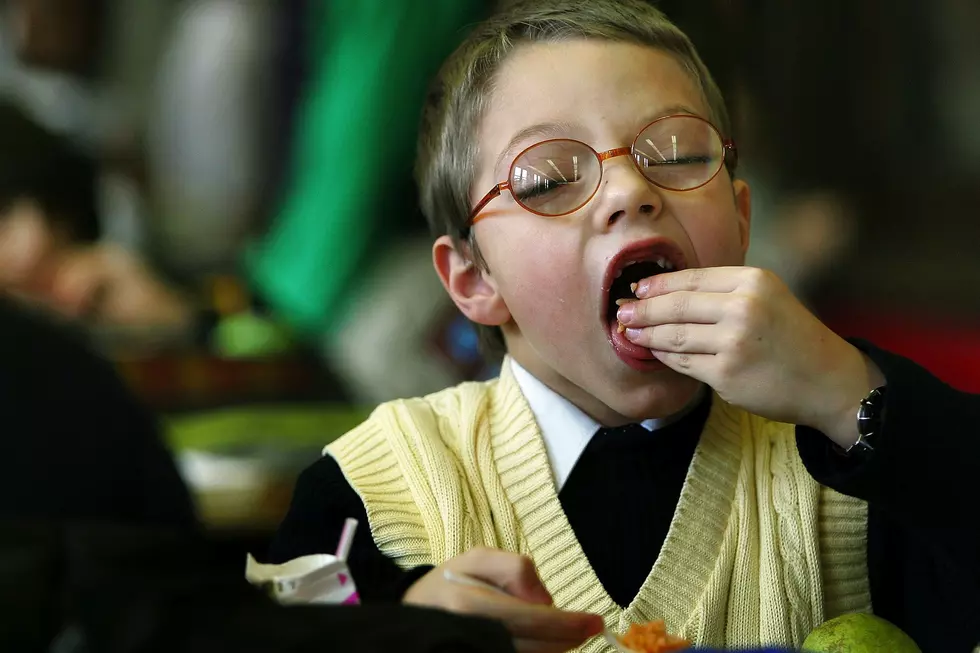
National Public Health Week 2013 – Keeping Kids Healthy at School
Keeping children healthy at home is enough of a task for parents and guardians. Once good health habits take root, how can they be maintained for all the hours the kids are in school?
During National Health Week 2013, officials contend that the synergies among teachers, students, administrators and parents run deep - and that communication failures ultimately lead to health declines and soaring costs.
"Research shows that students' health influences their grades, their attendance and their behavior," says Leslie Terjesen at the Ocean County Health Department. "Education is certainly one of the determinants that influences a person's health throughout their life span."
Troubling Data
She reels off staggering stats gathered in a national survey of high schoolers in 2011. "The obesity prevalence among children and teens has nearly tripled since 1980, or about...12,500,000 children ages two to 19 are obese...Only 29 percent of students nationwide took part in the recommended 60 minutes per day of physical activity and only 31 percent attended physical education class[es]...In 2009 about one in 10 children had asthma."
The cost for asthma treatment in children and adults, she says, now eclipses $50,000,000,000 a year.
She also cites data showing that about four-thousand minors each day are trying their first cigarettes, and about 25 percent of them get hooked and stay hooked on tobacco.
Help Direct Policy
So, how can parents and guardians change the system? First, she says, become involved. Consider whether a few weeknight school board meetings is more troubling than health and behavior risks that result from inaction.
"We need to advocate for smoke- and tobacco-free policies," says Leslie, noting that all New Jersey schools are smoke-free, as is Ocean County College.
She adds that parents can lobby for reduced bus idling for fewer harmful emissions, and non-toxic cleaning solutions in the halls and classrooms. "Does the school keep asthma action plans on file? Are students allowed to carry their inhalers? Does the school nurse know which students have asthma?"
Behavior also has a bearing on health, she says. "You want to organize for a schoolwide policy against bullying...to create a safe place for kids to get help."
And as far as obesity goes, says Leslie, urge administrators to remove the temptations that clutter the lunchrooms. "Encourage your child's school to stop stocking soda and junk food in vending machines and put restrictions on the types of food that are outside the official school-meal programs."
Of course, diet and exercise go hand in hand for health. How about those phys-ed classes that look flexible - if not expendable - when school budgets are scraping along? "Contact [your] school district, contact the New Jersey Department of Education. Volunteer for health education efforts that teach kids to say 'no' to tobacco, drugs and alcohol."
Health Guardians Inside and Out
Ocean County, says Leslie, maintains its own second line of defense for such matters. "All of our municipal alliances...provide drug, alcohol, and tobacco prevention programs through communities and through the schools"
Additionally, she continues, behavior and health sensibilities contribute to interpersonal relationships. "You certainly want to support evidence-based sexual health education that's aimed at preventing diseases and unplanned pregnancies."
Reductions in health risks among kids and teens may not absolutely mean lower school taxes, but turning the cost burden from remedies to prevention is the strongest guarantee for better health and expense maintenance over a lifetime.
Ocean County Health Department's web page contains useful tips for National Public Health Week and scores of other issues, along with ongoing clinic and workshop schedules and much more.
More From 92.7 WOBM









